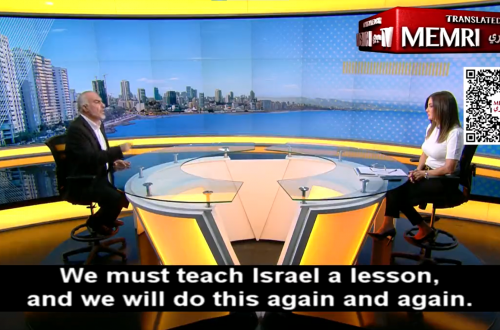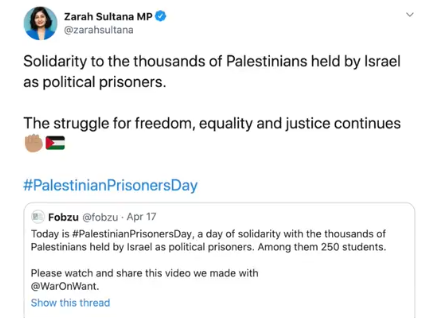This is a cross-post from Just Journalism.
Yossi Alpher is the Israeli co-editor of the bitterlemons family of internet publications. The bitterlemons publications reflect a joint Palestinian-Israeli effort to promote a civilized exchange of views about the Israel-Arab conflict and additional Middle East issues among a broad spectrum of participants.
Alpher served as director of the Jaffee Center for Strategic Studies, Tel Aviv University, as director of the American Jewish Committee’s Israel/Middle East Office in Jerusalem and as a senior official in the Mossad. In July 2000 he served as special adviser to Israeli Prime Minister Ehud Barak, concentrating on the Israeli-Palestinian peace process.
Just Journalism Media Analyst Chris Dyszyński recently interviewed Alpher about bitterlemons, the competing narratives in the conflict, and his belief that the Palestinian bid for UN recognition of statehood could be ‘leveraged into a win-win situation for Israelis, Palestinians and the world.’
Chris Dyszyński: You’re the Israeli co-editor of bitterlemons, which seeks to ‘promote a civilized exchange of views about the Israel-Arab conflict’. What was the thinking behind its creation, and how did you and Ghassan Khatib (the Palestinian co-editor) end up working together on it?
Yossi Alpher: The bitterlemons concept emerged in my thinking in the year 2000 from years of research on a solution to the conflict and informal, ‘track II’ meetings with Palestinians and other Arabs. An on-line dialogue that enables anyone to ‘listen in’ to the Israeli-Palestinian exchange of views seemed like the next natural step. Of course, it was impossible before the internet. Ghassan and I knew one another from years of track II contacts. We always disagreed with one another, but with mutual respect. We decided to incorporate that idea in bitterlemons.
CD: Although the emphasis is on promoting dialogue, you’re happy to include commentary from quite polarising figures. Recent examples include Jamal Juma, who is a prominent supporter of the Boycotts Sanctions and Divestment (BDS) campaign against Israel, and Gerald Steinberg, the bête noir of left-wing Israeli NGOs. What are your ‘red lines’ in terms of opinions and figures that you would not publish?
YA: Our main red line is ‘no pigs and monkeys’, i.e., rejecting racist, ethnic and personal slurs, calls for genocide, etc. Over the past ten years I recall a few occasions where we had to invoke this red line, including an instance where a Palestinian quite literally said Jews were descended from pigs and monkeys and another instance where an Israeli said the same about Palestinians. But virtually no topic is or should be taboo for a serious dialogue, and we strive in each edition to present a broad spectrum of views, Israeli and Palestinian. Incidentally, in bitterlemons-international we do the same thing regarding more generalized Middle East issues.
CD: One criticism of attempts to foster dialogue and understanding between the two sides is that Israelis seem more likely to accept elements of the Palestinian narrative than the other way around. For example, it’s not unusual to hear Israelis describing settlements as the biggest obstacle to peace or arguing that acts of ethnic cleansing occurred during Israel’s formation. Almost unheard of are Palestinians affirming the historical Jewish connection to the region or acknowledging Israeli fears of conceding more territory after Hamas took over Gaza. What are your thoughts on this?
YA: I tend to agree with your observation. But it’s a subjective observation. A Palestinian would probably see this issue quite differently. Let’s recall that Israel has a more veteran and developed civil society and academia than Palestine, and that Palestinians are, quite understandably, thoroughly preoccupied with their national situation whereas Israel’s preoccupations are much wider. It often seems to me that the Palestinian national dialogue on these issues is where Israel was in the early 1950s, when our media exercised a considerable degree of self-censorship on issues like ethnic cleansing and the existence of a Palestinian people. But Palestine also belongs to the Arab world, which tends to take just as narrow an approach to Israel’s historic roots in the region. This may not change for a long time. I don’t like this, but it’s the reality we live in, and Palestinian exposure to Israeli and pro-Israeli views through bitterlemons certainly can’t hurt.
CD: Speaking of exposure to differing views, do you know the geographic break-down of your subscribers? Can you gauge how many Israeli and Palestinian readers you have, relative to one another, or how popular bitterlemons is in, say, Gaza compared to the West Bank?
YA: By design, we do not. In order to encourage readers from even the most sensitive countries, we do not ask our readers for any identifying data such as name and country of origin. Also, we have three categories of readers: email subscribers, website visitors, and a huge number of ‘secondary subscribers’ who receive our material from the ‘lists’ of subscribers and read our articles reproduced on other websites and the print press. Just by way of example, when the Daily Star in Beirut reproduces an article of ours, which it frequently does, this opens up an additional readership potential of tens of thousands throughout the Arab world.
Nor do we operate, again by design, a chat, talkback or forum function, which from our experience tend to deteriorate quickly to a very low level. We offer our readers a more elitist approach: a short, readable set of opinion articles on a relevant topic, no questions asked.
CD: You recently co-authored ‘Buying Into Palestinian Statehood’, an opinion piece for the New York Times that represents quite an unusual approach to the unilateral Palestinian bid for UN recognition in September. What’s the basic thrust of your argument?
YA: First, that neither PM Binyamin Netanyahu nor PLO Chairman Mahmoud Abbas is interested in negotiating. Neither is able to make the far-reaching ideological and political concessions necessary to sustain serious new peace talks. But Abbas’ appeal to the UN is not necessarily a bad thing, because it reflects a readiness on his part to make a huge concession at the UN that he won’t, or politically can’t, make in negotiations. There, ‘nothing is agreed until everything is agreed’ and the more easily discussed territorial and security issues are held hostage to the ‘existential’ issues of recognizing the right of return and who ‘owns’ the Temple Mount. At the UN, Abbas is prepared to accept a determination regarding statehood, territory and a capital in Jerusalem without immediate reference to the rest.
Israel and/or its supporters should seize upon this new reality and leverage the Palestinian statehood resolution at the UN into a ‘win-win’ resolution that awards the Palestinians a state within the 1967 lines with its capital in East Jerusalem, but balances this with advantages for Israel: recognition as a Jewish state (recalling UNGAR 181 of 1947 that created Israel precisely as a Jewish state); recognition (for the first time) of Israel’s capital in Jerusalem; a call for negotiated land swaps; extensive security provisions; insistence that all outstanding issues hereinafter be negotiated; recognition that, until Hamas accepts Quartet conditions, Gaza will not be treated as part of a Palestinian state; a demand that the Arab states reward Israel for the creation of a Palestinian state with aspects of normalization as called for by the Arab Peace Initiative; etc.
All in all, when Abbas sits down at the negotiating table as president of the state of Palestine rather than (as under Oslo) chairman of the PLO with its huge refugee constituency, the conflict will be much more manageable, even if a genuine ‘end of claims’ remains elusive.
CD: ‘Buying into Palestinian Statehood’ was the subject of a recent bitterlemons round-up, and one of the criticisms made by Ghassan Khatib, the Palestinian co-editor, was that your description of ‘two states for two people’ might be a reference to the Jewish people, rather than just the Israeli people. If even a Palestinian involved in a project like bitterlemons is uncomfortable with the idea of Israel as the representation of Jewish self-determination, is there any hope for the competing narratives of the two sides to ever be bridged? And if issues such as borders and refugees are resolved, does it really matter if Israelis and Palestinians never see eye to eye in terms of their historical accounts of the conflict?
YA: Frankly, I doubt that the coming decades will see a resolution of the two final status issues–the right of return and the Temple Mount. The consensus Israeli position requires that in order to end the conflict completely, Palestinians recognize, in some shape or form, the right of the Jewish people to self-determination in its native homeland. The Palestinian position (and that of many other Arabs) is that the State of Israel was ‘born in sin’ and must acknowledge that it is a foreign colonialist implant by recognizing the right of return (i.e., in 1948, Palestinians were right and Israel was wrong) and awarding total and exclusive Palestinian/Islamic sovereignty over the Temple Mount (because, in the words of Arafat and Abbas, ‘there never was a temple there’). Israel and state neighbours like Egypt and Jordan could ignore these issues in making peace. Israel and the Palestinians cannot ignore them if they want to reconcile their narratives about what happened in 1948 and reach an end-of-claims agreement.
I believe that the Palestinian UN initiative implicitly recognizes this impasse and signals a desire to normalize relations to the greatest extent possible without resolving these issues. Reasonable Israelis and their supporters who desperately want to maintain Israel as a Jewish and democratic state and know that this requires ending the occupation and creating a Palestinian state, should seize upon the Palestinian initiative and leverage it.
But whatever happens at the UN in September, we must begin to come to terms with the key flaw of Oslo: its demand that final status solve all the issues. Some appear to be unsolvable, at least for now.
Yossi Alpher is the Israeli co-editor of the bitterlemons family of publications. The subscriber list can be joined on their website.


